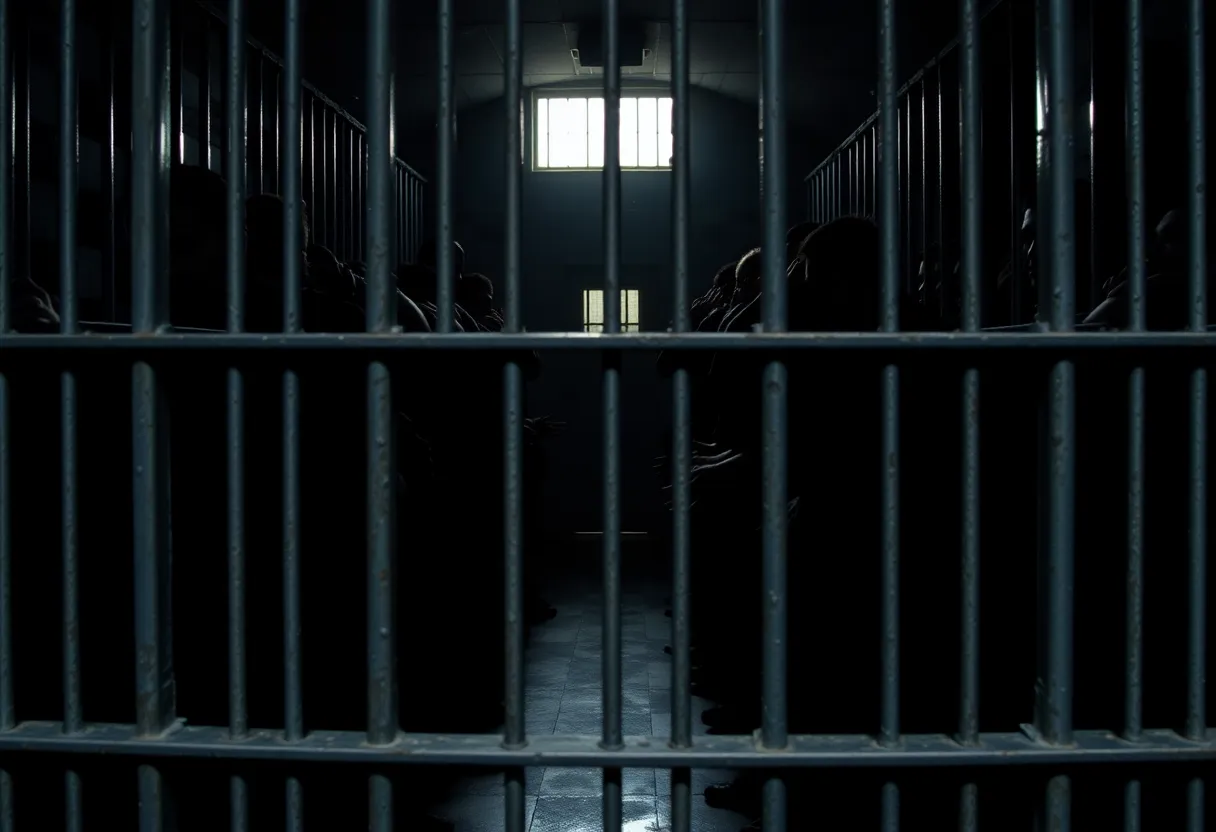News Summary
Kilmar Abrego Garcia reveals horrific experiences following his deportation by the Trump administration. After being unlawfully sent back to El Salvador, he faced torture and inhumane conditions in CECOT prison. His accounts of severe beatings, malnutrition, and isolation raise serious concerns about U.S. immigration policies and their impact on individuals. Abrego’s ongoing legal battle highlights the stark contrast between his experiences and the official narratives presented by government authorities.
Kilmar Abrego Garcia’s Nightmarish Experience in Salvadoran Prison
In a shocking account that highlights the grim realities of immigration policies, Kilmar Abrego Garcia, a native of El Salvador, has come forward with allegations of torture and abuse following his illegal deportation by the Trump administration in March 2025. This deportation, which the Supreme Court has deemed unlawful, violated a court order aimed at protecting him from potential gang violence back home.
Details of the Deportation and Its Aftermath
Abrego’s legal journey has been a tumultuous one, marred by missteps and miscommunications. The Justice Department has admitted the deportation was a mistake—one that has led to harrowing consequences for Abrego. After being sent back to El Salvador, he was thrown into CECOT, a notorious Salvadoran prison, where he faced unimaginable suffering.
Uncovering the Horrors Inside CECOT
In a legal filing submitted on June 25, 2025, Abrego recounted a series of distressing events during his time in prison. He described being subjected to severe beatings, sleep deprivation, and malnutrition. Upon arrival, Abrego faced physical abuse right away, being shackled and forcibly removed from the aircraft. As if that wasn’t alarming enough, upon entering CECOT, he was welcomed with unsettling words that would haunt him during his stay: “Whoever enters here doesn’t leave.”
A Descent into Despair
Once inside CECOT, Abrego was made to strip and change his clothes under duress—an experience filled with humiliation and trauma. He reported being kicked and beaten by the guards. In just two weeks, he lost an alarming 31 pounds, leaving him with visible bruises and lumps throughout his body.
The Unbearable Living Conditions
Life in CECOT was nothing short of inhumane. Abrego was crammed into an overcrowded cell with 20 other inmates. They were forced to kneel for hours overnight, and any inmate who succumbed to exhaustion was hit by guards. The lack of basic necessities escalated the trauma, as Abrego found himself without access to a bathroom—a situation that led him to soiling himself due to the agony of holding it in.
Isolation and Heartbreak
For over a month, Abrego was held incommunicado. He couldn’t reach out to family or legal representatives, which added to his anguish. The first bit of good news came when he was finally able to speak with Senator Chris Van Hollen during a visit in April 2025. His lawyers have presented a comprehensive 40-page account of his ordeal as part of a proposed amendment to a lawsuit related to his deportation.
Contrasting Narratives and Ongoing Legal Battles
Amidst the turmoil, there’s a stark contrast between Abrego’s narrative and the story presented by the Trump administration and Salvadoran President Nayib Bukele. While the administration claimed that Abrego was “in good health” upon deportation, his accounts reveal a different reality filled with suffering and abuse. Adding to the complexity, Abrego’s tattoos have led prison officials to insinuate a connection to gangs, a statement that his lawyers vigorously dispute, emphasizing that he has no gang affiliations.
New Legal Challenges
As if his situation couldn’t get worse, Abrego faced a new legal challenge when a grand jury in Tennessee indicted him in June 2025 for human smuggling. Authorities allege that he had been involved in transporting undocumented immigrants for many years. He had lived in the U.S. since illegally entering around 2011, residing in Maryland until his deportation.
What Lies Ahead?
With Abrego now back in U.S. custody, a magistrate judge has ordered that he remain detained at least until July 16, 2025. Concerns about his potential deportation loom large, particularly due to conflicting statements from government officials regarding his legal status. As Abrego’s complicated legal saga unfolds, it shines a light on the impact that U.S. immigration policies under the Trump administration have had on individuals like him, raising urgent questions that require answers and actions to prevent further injustice.
Deeper Dive: News & Info About This Topic
- Tennessee Lookout: Judge Keeps Kilmar Abrego in Jail
- Denver Post: Star Witness Against Kilmar Abrego Garcia
- WKRN: Kilmar Abrego Garcia Federal Hearing in Nashville
- Encyclopedia Britannica: Immigration Policy
- Google News: Kilmar Abrego Garcia

Author: STAFF HERE AUGUSTA WRITER
The AUGUSTA STAFF WRITER represents the experienced team at HEREAugusta.com, your go-to source for actionable local news and information in Augusta, Richmond County, and beyond. Specializing in "news you can use," we cover essential topics like product reviews for personal and business needs, local business directories, politics, real estate trends, neighborhood insights, and state news affecting the area—with deep expertise drawn from years of dedicated reporting and strong community input, including local press releases and business updates. We deliver top reporting on high-value events such as Arts in the Heart Festival, Westobou Festival, and Masters Week. Our coverage extends to key organizations like the Augusta Metro Chamber of Commerce and Greater Augusta Arts Council, plus leading businesses in manufacturing and healthcare that power the local economy such as Textron Specialized Vehicles, Cardinal Health, and Nutrien. As part of the broader HERE network, including HEREAtlanta.com and HERESavannah.com, we provide comprehensive, credible insights into Georgia's dynamic landscape.


